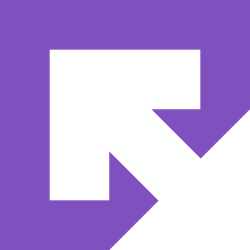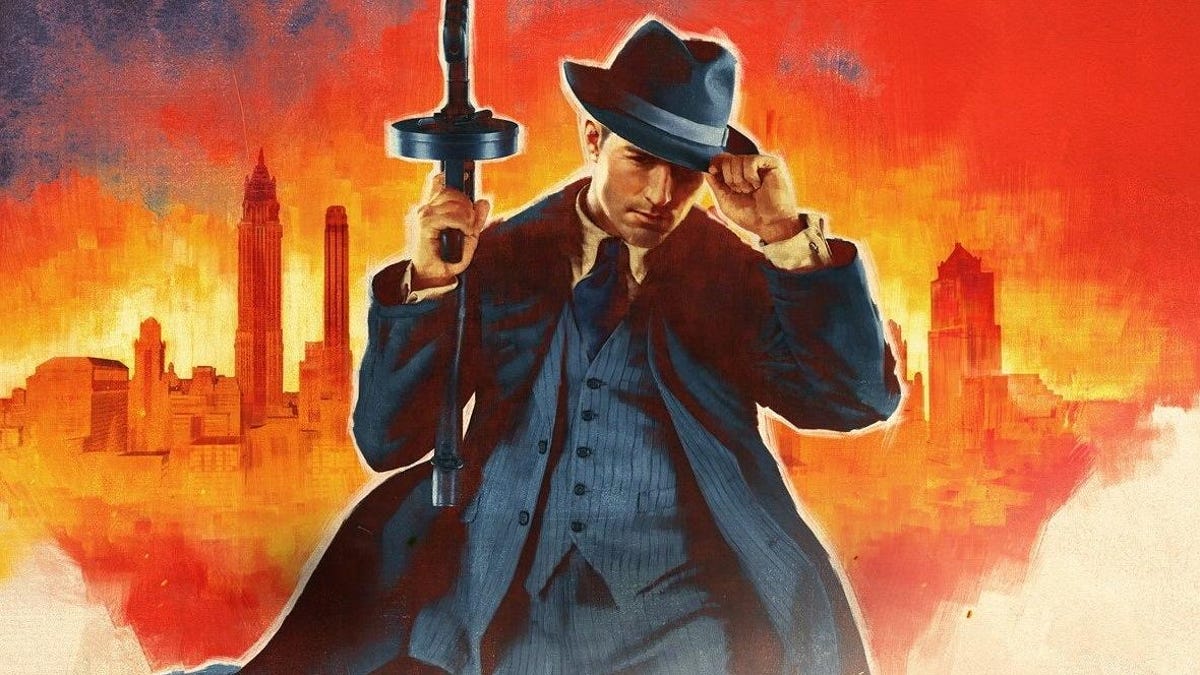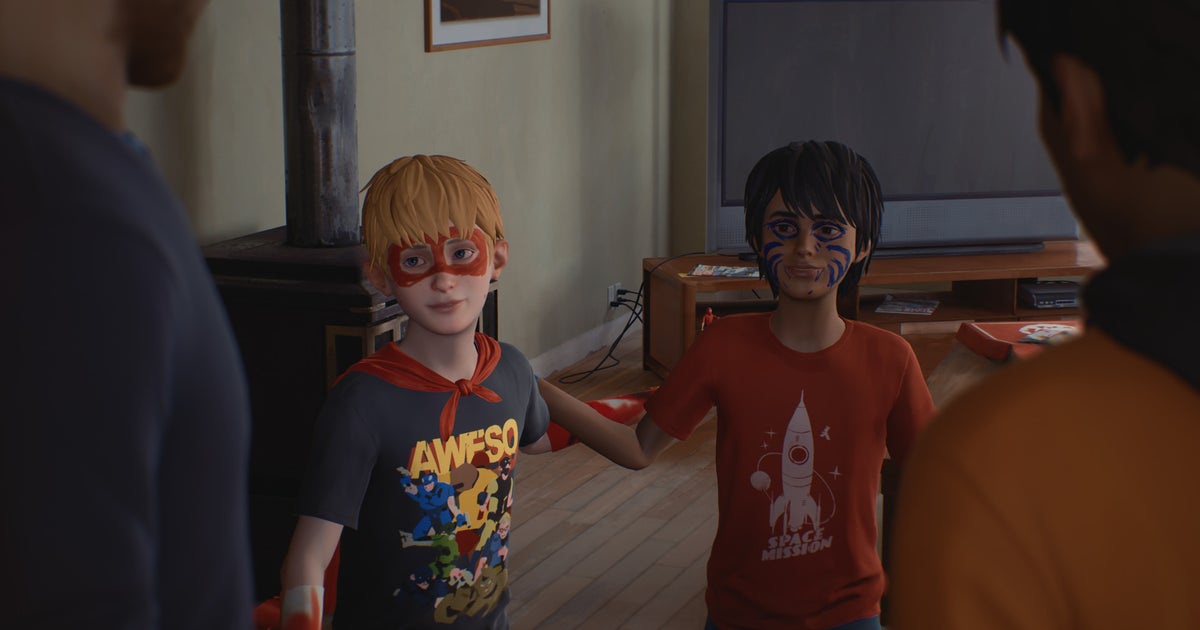Videospielnews
- Ersteller Para
- Erstellt am
Du verwendest einen veralteten Browser. Es ist möglich, dass diese oder andere Websites nicht korrekt angezeigt werden.
Du solltest ein Upgrade durchführen oder einen alternativen Browser verwenden.
Du solltest ein Upgrade durchführen oder einen alternativen Browser verwenden.
silbex
hmmm
Bisher ist es nie gut gegangen, wenn ein Medienriese sich einen Videospielpublisher geschnappt hat. Denn oft fehlt dort dann das Knowhow die Gamingsparte entsprechend zu positionieren. Warner Bros. Discovery will seine Sparte auch nicht umsonst loswerden, obwohl das wohl sogar ein Unternehmen ist, dass halbwegs gut funktioniert.
Würde da wirklich nur ein Merger mit einem anderen Publisher sehen oder jemand wie Amazon, der mit aller Macht versucht in den Bereich Fuß zu fassen.
Ich hoffe, dass nach einem Verkauf die ganzen großen IPs wieder genutzt werden. Was würde ich für ein klassisches Medal of Honor mit heutigen Mechaniken geben.
Würde da wirklich nur ein Merger mit einem anderen Publisher sehen oder jemand wie Amazon, der mit aller Macht versucht in den Bereich Fuß zu fassen.
Ich hoffe, dass nach einem Verkauf die ganzen großen IPs wieder genutzt werden. Was würde ich für ein klassisches Medal of Honor mit heutigen Mechaniken geben.
twitter, reddit & co. :
"kiryu in tekken!"
"kiryu in smash bros!"
"kiryu in fortnite!"
sega:
"kiryu in tekken!"
"kiryu in smash bros!"
"kiryu in fortnite!"
sega:
RollingRolli
Mitglied
ganz interessant: vice president of marvel games jay ong und insomniac ceo ted price haben im neusten history of video games buch darüber gesprochen, wie es damals 2014 mit dem spider-man deal zwischen playstation, marvel und insomniac gekommen ist.

 www.resetera.com
www.resetera.com
marvel hatte irgendwann mal die schnauze voll von den hauptsächlich mittelmäßigen videospiel umsetzungen, gerade da dc in dem sektor mit arkham asylum gezeigt hat, wie es richtig geht. das hat dazu geführt, dass ong und sein team den bestehenden deal mit activision vorzeitig aufgelöst hat, um sich neue partner zu suchen. die wahl fiel auf die drei plattformhalter microsoft, nintendo und sony. während nintendo wohl kein allzu großes thema war, sah das bei microsoft und sony schon anders aus. microsoft lehnte aber auch schnell ab, da sie sich zu dem zeitpunkt mehr auf ihre eigene ips konzentrieren wollten, während playstation's adam boyes und john drake (der mittlerweile seit paar jahren selber bei marvel games arbeitet) den deal mit ong über die bühne gebracht haben.
über die wahl auf insomniac und die zusammenarbeit der drei konzerne:
auch erwähnenswert wie activision bei der ganzen sache reagiert hat, als marvel ihren deal mit ihnen vorzeitig beenden wollten:
und wie sie es gefunden haben.

[History of Video Games Vol.2] Early History of Marvel Games (included discussions with Activision, Microsoft & Sony)
An interesting segment on Marvel Game's early history and how they reached out to both Microsoft and Sony to explore potential first-party deals, how they had to negotiate with Activision to terminate the Spider-Man deal earlier than deadline, and some extra details on Sony/Insomniac/Marvel...
marvel hatte irgendwann mal die schnauze voll von den hauptsächlich mittelmäßigen videospiel umsetzungen, gerade da dc in dem sektor mit arkham asylum gezeigt hat, wie es richtig geht. das hat dazu geführt, dass ong und sein team den bestehenden deal mit activision vorzeitig aufgelöst hat, um sich neue partner zu suchen. die wahl fiel auf die drei plattformhalter microsoft, nintendo und sony. während nintendo wohl kein allzu großes thema war, sah das bei microsoft und sony schon anders aus. microsoft lehnte aber auch schnell ab, da sie sich zu dem zeitpunkt mehr auf ihre eigene ips konzentrieren wollten, während playstation's adam boyes und john drake (der mittlerweile seit paar jahren selber bei marvel games arbeitet) den deal mit ong über die bühne gebracht haben.
Hired as Marvel's vice president of games in May 2014, Jay Ong's first challenge was to discover why Marvel's box office success hadn't translated to games.
On the Marvel side, there had been games that were beloved well before I got there. Marvel vs. Capcom had its fan base. Ultimate Alliance had its fan base. They both were really high-quality games that were made for the fans.
What he needed was a publishing partner who hadn't adopted the "crappy licensed games" mentality. He needed a company with an eye for long-term investments, one with a vested interest that would benefit from building a franchise. That partner would need to have a deep pool of talent, commitment to quality, and inexhaustibly deep pockets. There were three companies that fit that description. One of them, Nintendo, mostly developed games based on its own intellectual properties.
Being from console first-party in my past, I pinged both sides, both Xbox and PlayStation, and said, "We don't have any big console deals with anyone right now. What would you like to do?" Microsoft's strategy was to focus on their own IP. They passed.
I sat down with these two execs from PlayStation third-party, Adam Boyes and John Drake, in August 2014, in a conference room in Burbank. I said, "We have a dream that this is possible, that we could beat Arkham and have one game at least and maybe multiple games that could drive adoption of your platform."
über die wahl auf insomniac und die zusammenarbeit der drei konzerne:
Sony turned the project over to Insomniac Games,*18 an independent studio at the time, but one of Sony's most important partners. Insomniac had a long list of hits that were published under the Sony label—Spyro the Dragon, Ratchet & Clank, Resistance: Fall of Man, and most recently Sunset Overdrive.*19
Insomniac was an obvious choice for the project. As a studio, Insomniac had an impeccable record as both a designer of hit games and a reliable partner for Sony. Another plus, one of the studio's most recent games, Sunset Overdrive, incorporated a fast-paced, highly acrobatic style of combat that was equal parts parkour, Tony Hawk's Pro Skater, and Call of Duty, a very Spider-Man style of fighting that involved swinging and grinding over cities while facing multiple enemies.
Insomniac's ability to create games based on already existing intellectual property may have caused some concern. Historically, the studio created IP rather than building off of other companies' ideas. In truth, other companies adapted Insomniac's IP.*20
When we heard of the opportunity, thanks to Connie [Sony Interactive Entertainment vice president of product development Connie Booth] at Sony, it was a real surprise for me because up until that point we had been working on our own IP and hadn't really contemplated working on existing franchises.
Sony's participation in this project would be anything but passive. Including marketing, the budget for franchise-building games like Marvel's Spider-Man routinely exceeded $100 million. With so much money and prestige on the line, Sony Interactive Entertainment assigned senior director Grady Hunt and PS4 designer Mark Cerny to consult on the project. Both men had worked as Sony consultants with Insomniac on early projects as well.
The three-way collaboration between Insomniac, Marvel, and Sony was a success. Having partnered with Insomniac many times throughout the PlayStation and PS2 eras, Sony executives had confidence in the studio's technical and game design savvy. For their part, studio founder Ted Price and his fellow "Insomniacs" understood how to work with Sony as well. Having worked in different industries serving a mostly similar audience, Price's Insomniacs had a natural affinity with their Marvel counterparts as well.
Very early on, we knew that there was a great chemistry between us and our compatriots at Marvel. A lot of that came from being able to learn more about the Marvel universe from those who were really experts in it…guys like Bill Rosemann [executive creative director, Marvel Games]. At the same time, the Marvel team was fantastic in trusting us to come up with a new story…to come up with a new take on Peter Parker, and to explore the mechanics of what Spider-Man could be in a modern game.
Marvel's Spider-Man was indeed a worthy rival for the Arkham games. Breaking Spider-Man into the top tier of games wasn't only a question of money and technology; it was a question of finding a team with a grand vision. Insomniac wanted to create an iconic game for an iconic superhero. Marvel's active participation ensured a new level of authenticity. Wanting to create a PlayStation-exclusive franchise, Sony not only lent Marvel's Spider-Man a gigantic marketing budget, the console giant also offered technical support from start to finish.
When it came to Spider-Man, Activision wasn't prepared to compete against games like Batman: Arkham Asylum. Sony was. To date, the Arkham games and Marvel's Spider-Man are unrivaled among superhero games for sales, with a steep drop to the next tier down. In 2020, as Sony prepared to release PlayStation 5, the exclusive game headlining that release was Marvel's Spider-Man: Miles Morales.
Marvel's Spider-Man was the first time that Marvel proper realized that games as a medium could drive the brand…could drive "brand affinity," as we call it.
auch erwähnenswert wie activision bei der ganzen sache reagiert hat, als marvel ihren deal mit ihnen vorzeitig beenden wollten:
Marvel decided to approach Activision about terminating the contract early. As they negotiated the request, Ong explained that Spider-Man needed new talent, a bigger budget, and fresh eyes. We finally negotiated a deal for them to walk away. It was a mutually beneficial deal. When we shook hands on it, they asked, "So what are you going to do with this IP after you get it back?"
I said, "I'm going to find a better home for it."
They replied, "Good luck finding your unicorn."
und wie sie es gefunden haben.
trotz den bemühungen von activision/blizzard hat es das QA team von raven software es geschafft: sie haben offiziell eine gewerkschaft gegründet.
One major reason this vote happened was poor treatment of the workers by Activision Blizzard in 2021, prompting a strike that lasted weeks and ended following a decision to hold a vote about forming a union and entering negotiations with Activision Blizzard over a contract. All the while, Activision Blizzard was dealing with the fallout from the state of California filing a lawsuit against the company after investigating its toxic workplace culture.
In recent months, Raven Software workers accused the publisher of curiously shifting staff around to thwart organizing, and just today, Bloomberg reported that US labor board prosecutors “determined Activision Blizzard illegally threatened staff and enforced a social media policy that conflicts with workers’ collective action rights.” An Activision spokesperson told Bloomberg the “the allegations are false.”
capcom hat in der nacht eine homepage für das 10 jährige von dragon's dogma online gestellt.
man könnte ja jetzt wild spekulieren, aber nachdem wir mittlerweile 2 handfeste leaks bezüglich eines nachfolgers hatten (der große capcom leak von november 2020 und der nvidia geforce now leak von september 2021) ist es eben nur eine frage der zeit, bis sie es offiziell ankündigen.
man könnte ja jetzt wild spekulieren, aber nachdem wir mittlerweile 2 handfeste leaks bezüglich eines nachfolgers hatten (der große capcom leak von november 2020 und der nvidia geforce now leak von september 2021) ist es eben nur eine frage der zeit, bis sie es offiziell ankündigen.
capcom hat in der nacht eine homepage für das 10 jährige von dragon's dogma online gestellt.
man könnte ja jetzt wild spekulieren, aber nachdem wir mittlerweile 2 handfeste leaks bezüglich eines nachfolgers hatten (der große capcom leak von november 2020 und der nvidia geforce now leak von september 2021) ist es eben nur eine frage der zeit, bis sie es offiziell ankündigen.
As we look to the future
Immer noch ein Unding, dass sie den Track für die Dark Arisen Edition ausgetauscht haben.
laut dem chinesischen elektronik konzern TCL sind die verbesserten ps5 und xbox series konsolen für 2023 und 2024 geplant:
wenn man sich die letzte generation anschaut, macht es natürlich irgendwie "sinn" davon auszugehen, da die ps4 pro und die xbox one x auch jeweils drei und vier jahre nach launch veröffentlicht wurden, aber durch den ganzen produktionsmangel seit den letzten zwei jahren, kann ich mir das ehrlich gesagt nicht wirklich vorstellen. kommen sicherlich irgendwann, aber später und allgemein wird die aktuelle konsolen generation wohl länger anhalten, als noch die letzte mit ihren insgesamt sieben jahren.
wenn man sich die letzte generation anschaut, macht es natürlich irgendwie "sinn" davon auszugehen, da die ps4 pro und die xbox one x auch jeweils drei und vier jahre nach launch veröffentlicht wurden, aber durch den ganzen produktionsmangel seit den letzten zwei jahren, kann ich mir das ehrlich gesagt nicht wirklich vorstellen. kommen sicherlich irgendwann, aber später und allgemein wird die aktuelle konsolen generation wohl länger anhalten, als noch die letzte mit ihren insgesamt sieben jahren.
laut kotaku arbeiten hanger 13 an einem neuen mafia ableger. dieses mal soll es sich dabei um ein prequel handeln.

Hangar 13 Bosses Leave, New Mafia In Development
LucasArts veteran Haden Blackman leaves the troubled 2K studio with Mafia 4 early in developmentkotaku.com
nach dem sehr guten remake zu mafia hab ich ja immer noch bock auf einen mafia 2 rerun und 3 wollte ich eigentlich auch nochmal eine chance geben.
haben die woche wohl einige mitarbeiter entlassen, aber schreier bestätigt auf den weg auch nochmal die existenz eines neuen mafia ablegers.
morgen gibt es sehr wahrscheinlich etwas neues von dontnod:
ihr wikinger spiel, welches von focus home gepublished wird, wäre langsam mal dran, gleichzeitig könnte es sich dabei aber auch um vielleicht etwas eigenes handeln, was sie selber publishen.
eine ältere news von ende 2020:

 www.gamesindustry.biz
www.gamesindustry.biz
ihr wikinger spiel, welches von focus home gepublished wird, wäre langsam mal dran, gleichzeitig könnte es sich dabei aber auch um vielleicht etwas eigenes handeln, was sie selber publishen.
eine ältere news von ende 2020:

Dontnod to embrace self-publishing for multiple future titles
Life is Strange studio Dontnod is ready to embrace self-publishing, starting with upcoming narrative title Twin Mirror.
So now, Guilbert says Dontnod wants to be "as independent as possible," and has formed publishing and marketing teams explicitly for that purpose. The studio currently has multiple games in its pipeline -- one a co-production with Focus Home Interactive, and another Guilbert says is being developed with the support of a major publisher. But Dontnod still has at least four more titles in development that he expects will all be self-published.
Wolke
crossing
Will ich doch hoffen. Da haben sie uns fallen gelassen wie eine heiße Kartoffel. Dass sie neue Projekte am Laufen haben, wissen wir ja bereits und so gesehen ist das also so eine nichtssagende News  Aber alles Gute zum Geburtstag!
Aber alles Gute zum Geburtstag!

